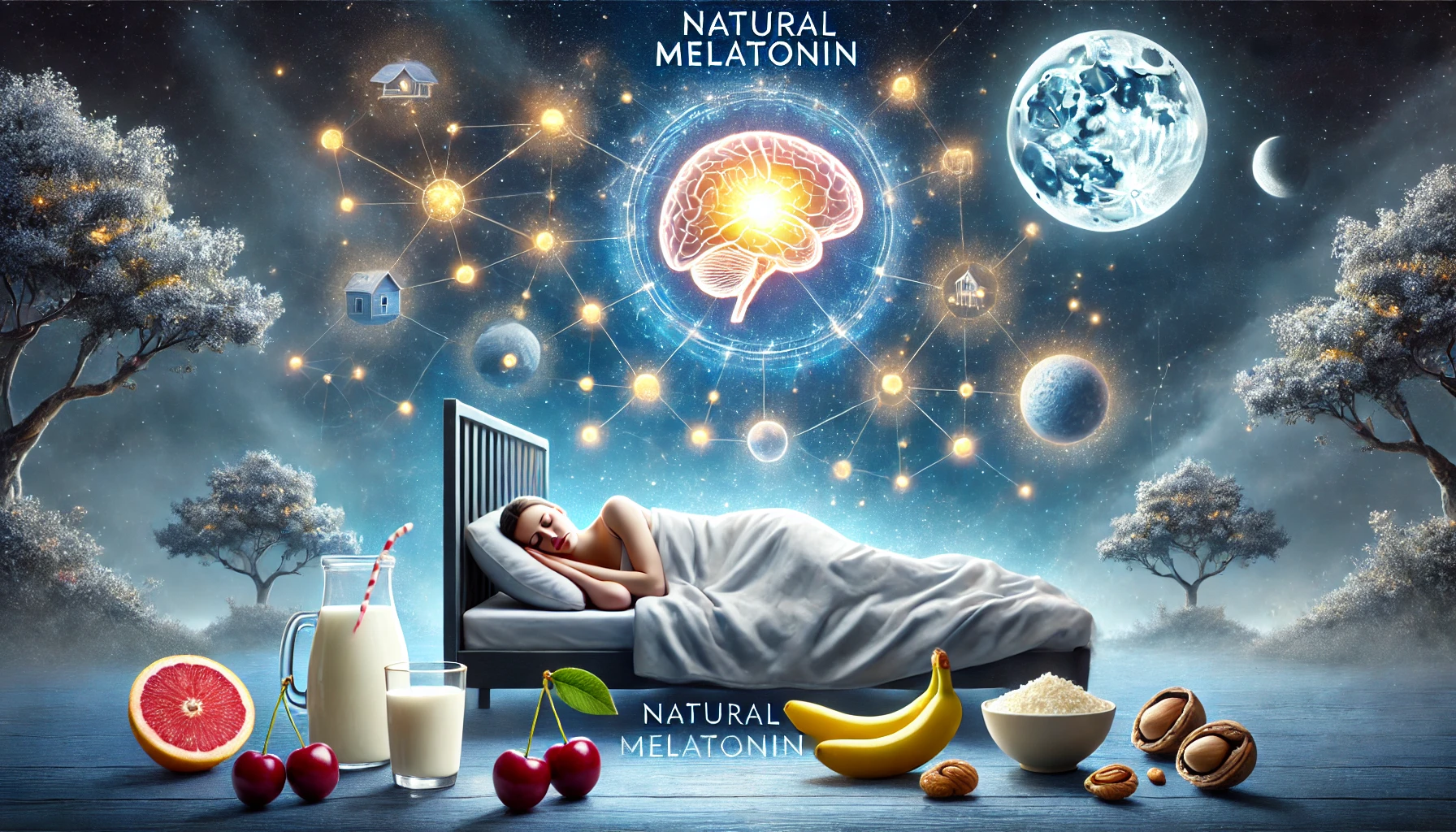Natural melatonin is a hormone produced by the brain’s pineal gland, primarily regulating sleep-wake cycles. In recent years, natural melatonin has gained attention as a nootropic supplement due to its potential benefits in enhancing alertness, focus, and cognition. This article aims to provide a detailed overview of natural melatonin, including its nature, health benefits, optimal dosage, side effects, potential substance interactions, and other helpful information regarding the best responsible use of this nootropic supplement. Furthermore, this article will discuss myPEAK DeltaSleep, a product that contains natural melatonin and other ingredients that promote better sleep and relaxation, which can enhance the overall benefits of natural melatonin.
You May Also Like:
Zinc: Benefits, Dosage, Side Effects, Drug Interactions, And Other Important Information
Tryptophan: Benefits, Dosage, Side Effects, Drug Interactions, And Other Important Information
Natural Melatonin: Benefits, Dosage, Side Effects, Drug Interactions, And Other Important Information is an original (MedNewsPedia) article.
Nature of Natural Melatonin
Natural melatonin is a hormone produced by the brain’s pineal gland. It is primarily involved in regulating sleep-wake cycles and is released in response to darkness, which signals the body to prepare for sleep. Natural melatonin levels are highest at night and lowest during the day.
Health Benefits of Natural Melatonin
One of the primary health benefits of natural melatonin is its ability to promote better sleep. Research has shown that natural melatonin supplementation can reduce the time it takes to fall asleep, increase total sleep time, and improve sleep quality. This is thought to occur because natural melatonin regulates the sleep-wake cycle by promoting relaxation and reducing neuronal activity in the brain.
Furthermore, natural melatonin has been found to have antioxidant properties, which can protect the body from oxidative stress. Oxidative stress occurs when an imbalance between free radicals and antioxidants in the body leads to cellular damage and aging. Natural melatonin can scavenge free radicals and prevent cellular damage, improving overall health.

Chemistry of Natural Melatonin
Natural melatonin is a hormone synthesized from the neurotransmitter serotonin. The pineal gland, a small endocrine gland in the brain, regulates the synthesis of natural melatonin. Darkness stimulates the production of natural melatonin, while light inhibits it.
Physiological Mechanism of Action
Natural melatonin acts primarily through its interaction with melatonin receptors, which are located in various regions of the brain and body. Melatonin receptors regulate circadian rhythms, sleep-wake cycles, and other physiological processes.
Research has shown that natural melatonin promotes relaxation and reduces neuronal activity in the brain, leading to improved sleep. Natural melatonin can also reduce cortisol levels, a hormone associated with stress. High cortisol levels can impair cognitive function and lead to mood disturbances. Natural melatonin supplementation has been found to reduce cortisol levels, leading to reduced stress and anxiety.
Additionally, melatonin has strong antioxidant properties that help protect cells from damage caused by free radicals, which can reduce the risk of various chronic diseases and support overall health. By reducing oxidative stress in the brain, melatonin promotes cognitive function and may protect against neurodegenerative diseases such as Alzheimer’s and Parkinson’s.
Optimal Dosage of Natural Melatonin
The optimal dosage of natural melatonin depends on several factors, including age, sex, and health status. Generally, the recommended dosage for adults is 1-10mg/day, taken 30-60 minutes before bedtime. However, some individuals may require higher or lower doses, and it is essential to speak with a healthcare provider before starting any new supplement to determine the appropriate dosage for your individual needs.
Side Effects of Natural Melatonin
Natural melatonin is generally well-tolerated and has few reported side effects. However, some individuals may experience mild side effects, such as headaches, dizziness, and nausea. These side effects are typically mild and resolve independently with continued use.
Potential Substance Interactions with Natural Melatonin
Natural melatonin can interact with certain medications and supplements, including blood thinners, antidepressants, and alcohol. It is essential to speak with a healthcare provider before taking natural melatonin if you are currently taking any medications or supplements to avoid potential interactions.

Best Responsible Uses of Natural Melatonin
When using natural melatonin, following the recommended dosage guidelines and speaking with a healthcare provider before starting any new supplement is essential. Additionally, natural melatonin can be taken with other supplements to enhance its benefits, such as myPEAK DeltaSleep. This product contains seven science-based star ingredients, including natural melatonin, that promote faster and optimized deep-wave sleep, muscle relaxation, reduced stress, calm and relaxation, and waking up refreshed. Furthermore, myPEAK DeltaSleep is all-natural, non-habit forming, vegan, plant-based, non-GMO, physician-formulated, lab-tested, cGMP certified, and manufactured in the USA with clinically proven ingredients in an FDA-registered facility.
Highlights of myPEAK DeltaSleep include natural melatonin, a high-quality, bioavailable source of this hormone that promotes better sleep and overall health.
Natural Melatonin: Conclusion
Natural melatonin is a crucial hormone for regulating sleep and maintaining overall health. It offers numerous benefits, including improved sleep quality, management of sleep disorders, antioxidant protection, immune support, mood regulation, and potential anticancer effects. By supporting the body’s natural melatonin production through lifestyle practices and dietary sources, or by using supplements when necessary, individuals can enhance their sleep quality and overall well-being.

References:
- What to know about natural melatonin. Retrieved from: https://www.medicalnewstoday.com/articles/natural-melatonin
- Dietary Sources and Bioactivities of Melatonin. Retrieved from: https://www.ncbi.nlm.nih.gov/pmc/articles/PMC5409706/
- Want better sleep? Try 5 foods naturally rich in melatonin. Retrieved from: https://www.cnbc.com/2022/08/22/5-foods-that-give-you-a-natural-dose-of-melatonin.html
- Melatonin from Microorganisms, Algae, and Plants as Possible Alternatives to Synthetic Melatonin. Retrieved from: https://www.ncbi.nlm.nih.gov/pmc/articles/PMC9862825/
Important Note: The information contained in this article is for general informational purposes only, and should not be construed as health or medical advice, nor is it intended to diagnose, prevent, treat, or cure any disease or health condition. Before embarking on any diet, fitness regimen, or program of nutritional supplementation, it is advisable to consult your healthcare professional in order to determine its safety and probable efficacy in terms of your individual state of health.
Regarding Nutritional Supplements Or Other Non-Prescription Health Products: If any nutritional supplements or other non-prescription health products are mentioned in the foregoing article, any claims or statements made about them have not been evaluated by the U.S. Food and Drug Administration, and such nutritional supplements or other health products are not intended to diagnose, treat, cure, or prevent any disease.


